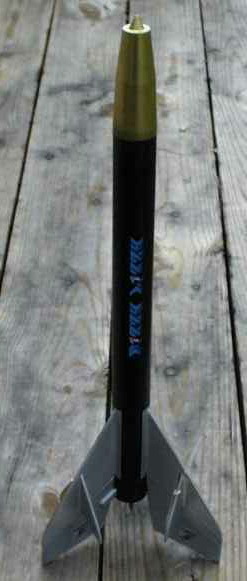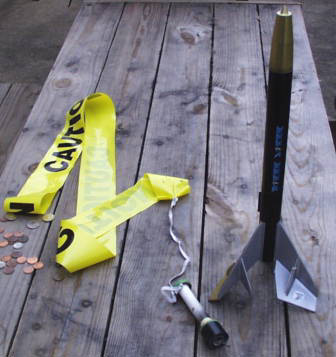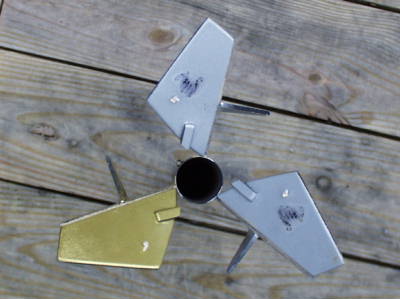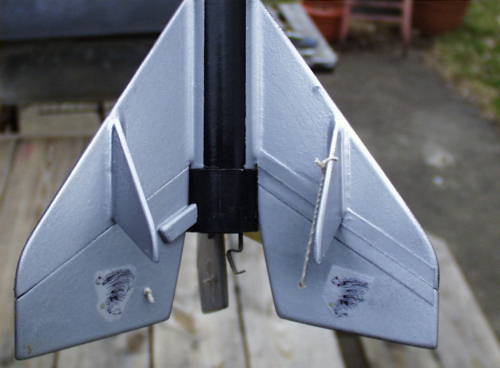Flight Report Here
is the flight report section from the Dizzy Lizzy the first time it was
launched. I have launched it several more times with the same
results. Spins fast, pod and rocket land very near to each other.
10-15 mph wind has very little effect on the flight and recovery at
all. I sent it up again today (right before the Saturn V)
3/5/2000
Dizzy Lizzy (Scratch) C6-3
Good boost 325+/- feet,
Ejection just past apogee. Worked as designed (spins like a top!)
Hit grass moderately hard, no damage. Engine pod returns with 6' streamer
nearby.
It's a keeper.
On a side note, I got some model aircraft hinges from a friend of mine. I am
thinking about making a larger version of the Dizzy Lizzy with some sort of
spring loaded nose/airframe connection to minimize the impact. I thought
I saw something like that on one of your designs.
Either that or I'll add a streamer that is secured to the end of the
airframe that deploys when the pod kicks out. It will still spin like a
son of a gun and I would think that the streamer would slow the descent
considerably.
|












